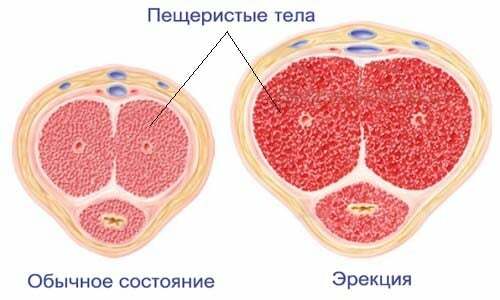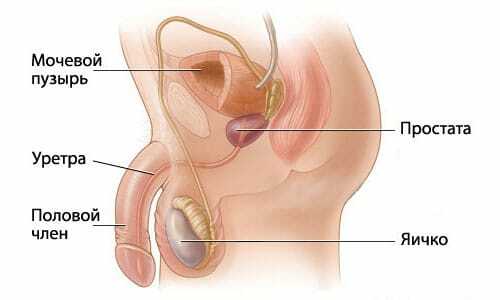Inflammatory processes in the prostate are typical for men of mature age after 40. Pathology causes various hormonal failures, viruses or bacteria, weak immune defense, genito-urinary and venereal diseases, prolongedlack of sex. Treatment usually does not cause problems, because the pharmaceutical market offers a lot of modern drugs that effectively cope with prostatitis. Only to decide which drug for prostatitis should be taken by a specific patient should be a qualified urologist after all.
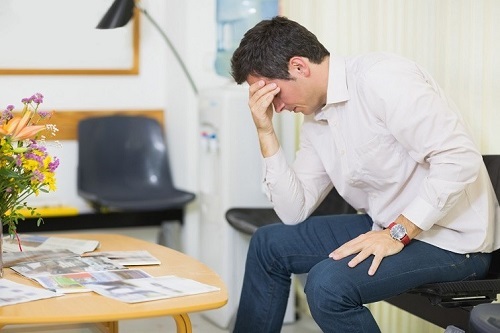
Forms used for prostatitis drugs
The drugs prescribed for the treatment of prostatitis are available in the form of tablets, suppositories, instillations, injections or microclysters. Tablets are usually presented with antibiotics with a fairly broad spectrum of action, which are prescribed in cases where the causative agent of pathology has not yet been identified. In general, antibiotic agents are represented by three groups of drugs:
- Fluoroquinolones - Ciprofloxacin, Norfoloxacin, Levofloxacin, etc.
- Penicillins - Oxacillin, Carbenicillin, Ampicillin, etc.
- Tetracyclines - Oxytetracycline, Minocycline, Doxycycline, etc.
Often in the treatment of prostatitis applyCandles that are used rectally( they are inserted into the anus).Such drugs effectively stop pain and have an antibacterial effect. Injection solutions are the most penetrating into the tissues of the body. They have a systemic effect, providing a stimulating effect on immunity and the vascular system.
According to experts, the maximum therapeutic effectiveness is achieved with rectal administration, therefore it is preferable to other methods of treatment of prostatitis.
Treatment of prostatitis rarely involves instillation procedures when the drug is injected directly into the urethral canal. Before the introduction of the solution, the man must empty the bladder. For one procedure, no more than 5 ml of solution is administered. The main therapy can be supplemented with folk remedies like microclysters, in which the medicine for prostatitis is presented in the form of herbal decoctions or infusions. The microclimis method is based on a complex temperature-drug effect. Such treatment should be performed before bedtime, because after microclysters, supercooling or overstrain of the prostate is unacceptable.
Pharmacological groups of preparations from prostatitis
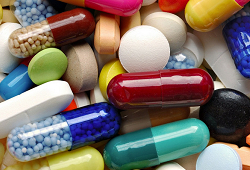 Treatment of prostatitis is always complex, including the use of drugs of various pharmacological groups: antibiotics, analgesics, α-adrenoblockers, muscle relaxants and hormones, antiviral and anti-inflammatory drugs, as well as phytotherapeutic agents, etc. With prostate bacterialetiology of antibiotic drugs are the basis of therapy. Treatment with tableted antibiotics is usually prescribed for bacterial prostatitis of chronic and acute forms and lasts about a month. In the case of complications of prostatitis treatment is carried out through the injection of the drug. If the causative agent of infection can not be identified, then combined antibiotic therapy is carried out.
Treatment of prostatitis is always complex, including the use of drugs of various pharmacological groups: antibiotics, analgesics, α-adrenoblockers, muscle relaxants and hormones, antiviral and anti-inflammatory drugs, as well as phytotherapeutic agents, etc. With prostate bacterialetiology of antibiotic drugs are the basis of therapy. Treatment with tableted antibiotics is usually prescribed for bacterial prostatitis of chronic and acute forms and lasts about a month. In the case of complications of prostatitis treatment is carried out through the injection of the drug. If the causative agent of infection can not be identified, then combined antibiotic therapy is carried out.
Significantly simplify the course of prostatitis analgesics, but they should be drunk, as prescribed, because uncontrolled use of analgesics can trigger the appearance of very undesirable side effects. Among drugs in this group, the most effective medicine for prostatitis is Ibuprofen. The use of α-blockers like Doxazosin, Terazozin or Tamsulosin is due to the relaxing effect of these drugs on the muscles and neck of the bladder, which significantly reduces the accompanying urination pain. But such drugs cause side reactions like hypotension or headache. Such medicines are prescribed for chronic prostatitis of non-bacterial etiology.
Often, the body of a man with prostatitis needs to restore and strengthen immune defense, which is helped by drugs from the group of immunomodulators, which include interferons and other medicines( Timogen, Cycloferon, Polyoxidonium, etc.).
Used in the therapy of prostatitis and muscle relaxants, reducing muscle tone, located in the perineum. The use of such drugs is due to the fact that it is the tension of these muscles that causes discomfort and soreness. The most effective among the relaxants is No-shpa and Baclofen. Use in the treatment of funds containing hormones is caused by the need to lower the testosterone level, which provokes the proliferation of the prostate gland. As a result of hormonal therapy, the intensity of the inflammatory process decreases and the hormonal background normalizes. Sometimes as an additional treatment for prostatitis used herbal drugs that eliminate swelling, inflammation and soreness. Means based on plant components are often used in the treatment of chronic forms of inflammation of the prostate.
In the case of prostatitis, the virus etiology shows the administration of antiviral agents like Famciclovir, Valaciclovir or Acyclovir. Therapy is often supplemented and anti-inflammatory drugs of the non-steroid group. The action of these drugs is aimed at eliminating the soreness and swelling, high temperature accompanying inflammatory processes in the prostate. Particularly effective suppositories with the content of anti-inflammatory non-steroid substances, among which specialists distinguish Diclofenac. This includes the drug for prostatitis Ketorolac, Indomethacin, Ketoprofen. In addition to these drugs, drug therapy often involves the use of drugs that improve the blood supply to the prostate. These are drugs like Eskuzana or Pentoxifylline.
Popular drugs
Oxacillin
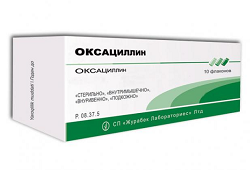 This antibiotic is the most effective in treating bacterial prostatitis. This agent is a semi-synthetic penicillin, has bactericidal properties for staphylococci, streptococci and other gram-positive bacteria.
This antibiotic is the most effective in treating bacterial prostatitis. This agent is a semi-synthetic penicillin, has bactericidal properties for staphylococci, streptococci and other gram-positive bacteria.
Afala
A homeopathic tablet preparation that prevents the proliferation of glandular prostate tissue. Afala normalizes metabolism and eliminates 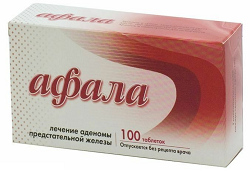 inflammatory processes, improves blood supply to the gland. The drug reduces inflammatory and edematous manifestations in the prostate, restores glandular functions, improves urodynamics and eliminates difficulty urinating, reduces prostate volume. Afala is prescribed for the complex treatment of prostatitis complicated by dysuric disorders. Therapeutic course lasts up to 4 months. There were no adverse reactions and contraindications to the drug( except for individual intolerance).
inflammatory processes, improves blood supply to the gland. The drug reduces inflammatory and edematous manifestations in the prostate, restores glandular functions, improves urodynamics and eliminates difficulty urinating, reduces prostate volume. Afala is prescribed for the complex treatment of prostatitis complicated by dysuric disorders. Therapeutic course lasts up to 4 months. There were no adverse reactions and contraindications to the drug( except for individual intolerance).
Prostamol
This drug relates to anti-inflammatory and decongestant drugs endowed with 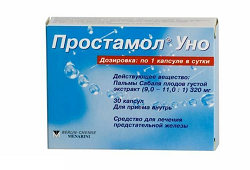 with antiandrogenic activity. Practice shows the high efficiency of Prostamol capsules in the complex treatment of prostatitis, which is why it is often prescribed to men with this problem. Taking the drug restores the work of the genitourinary system. Capsules should be taken once a day, the duration of the course is determined by the treating urologist.
with antiandrogenic activity. Practice shows the high efficiency of Prostamol capsules in the complex treatment of prostatitis, which is why it is often prescribed to men with this problem. Taking the drug restores the work of the genitourinary system. Capsules should be taken once a day, the duration of the course is determined by the treating urologist.
Vitaprost
It is a preparation in the form of rectal suppositories, manufactured on an antibiotic basis and having antibacterial and anti-inflammatory effects. 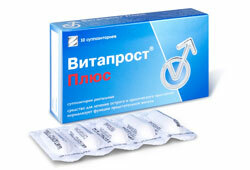 The use of suppositories normalizes the urinary process and reduces the risk of blood clots in the vessels of the prostate, restores the muscular function of the bladder and improves the quality of the semen.
The use of suppositories normalizes the urinary process and reduces the risk of blood clots in the vessels of the prostate, restores the muscular function of the bladder and improves the quality of the semen.
Vitaprost suppositories refer to fast-acting drugs and are prescribed for the chronic form of prostatitis or after surgery on the prostate gland. The course lasts 10 days, per suppository per day. According to the instructions, Vitaprost suppositories can provoke an adverse reaction, which is manifested by itching in the anus.
Prostatilen
This product is available as an injection or rectal suppository. The action of Prostatilen is associated with a decrease in the swelling of the prostate, as well as with the improvement of the quality of spermatozoa and with the normalization of blood circulation in 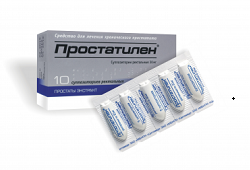 glandular tissues. The drug is anti-inflammatory and antimicrobial, increases muscular activity of the prostate and bladder, beneficially affects the functions of the immune system. Suppositories must be administered twice a day to the anus in 1-1.5 weeks. Injections of the drug are administered intramuscularly, diluting the powder with novocaine or saline solution in a course coordinated with the treating urologist.
glandular tissues. The drug is anti-inflammatory and antimicrobial, increases muscular activity of the prostate and bladder, beneficially affects the functions of the immune system. Suppositories must be administered twice a day to the anus in 1-1.5 weeks. Injections of the drug are administered intramuscularly, diluting the powder with novocaine or saline solution in a course coordinated with the treating urologist.
Effective agents for the treatment of inflammation in the prostate gland are released a lot, but you can not assign them yourself , even when there are no contraindications at all.

